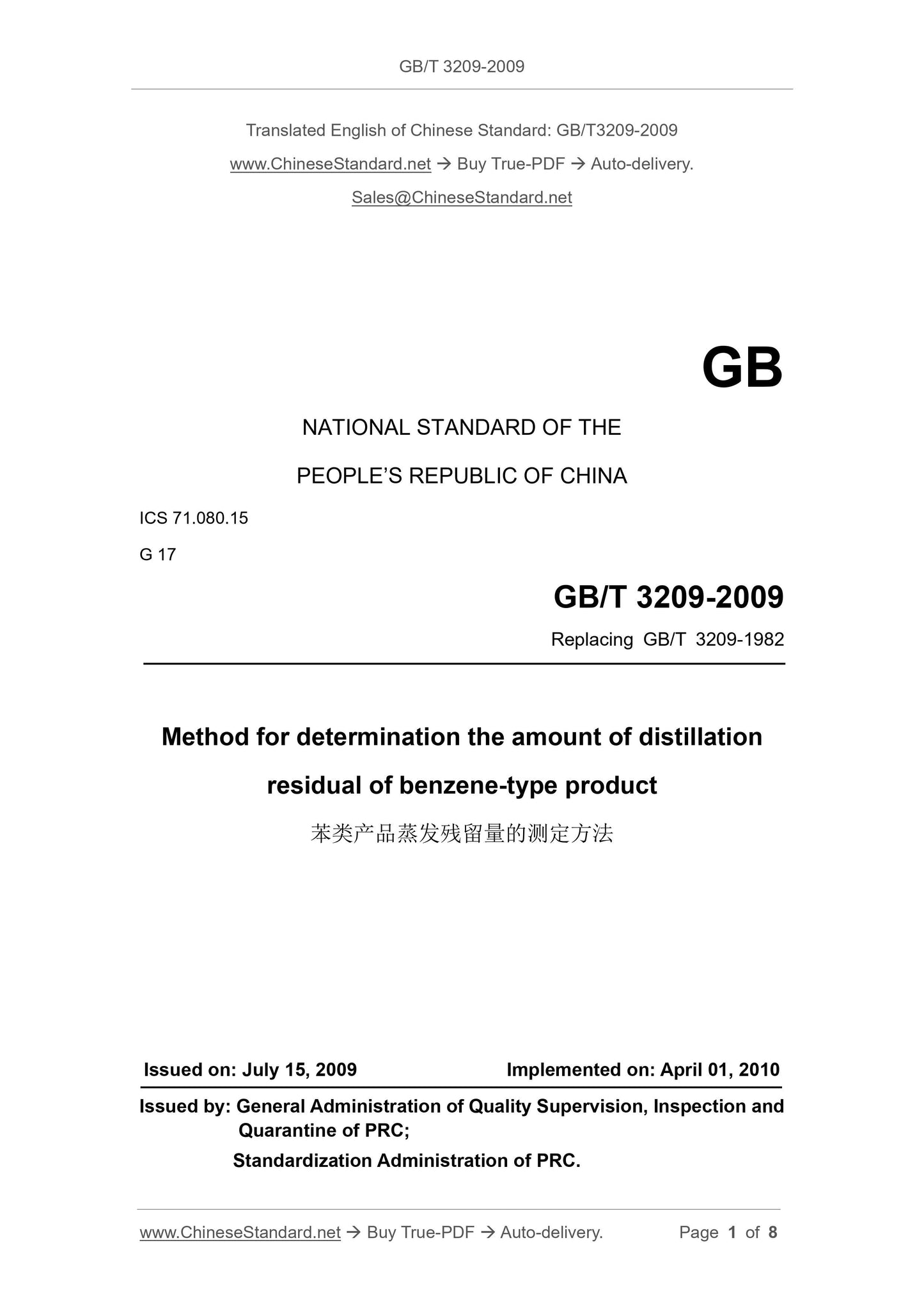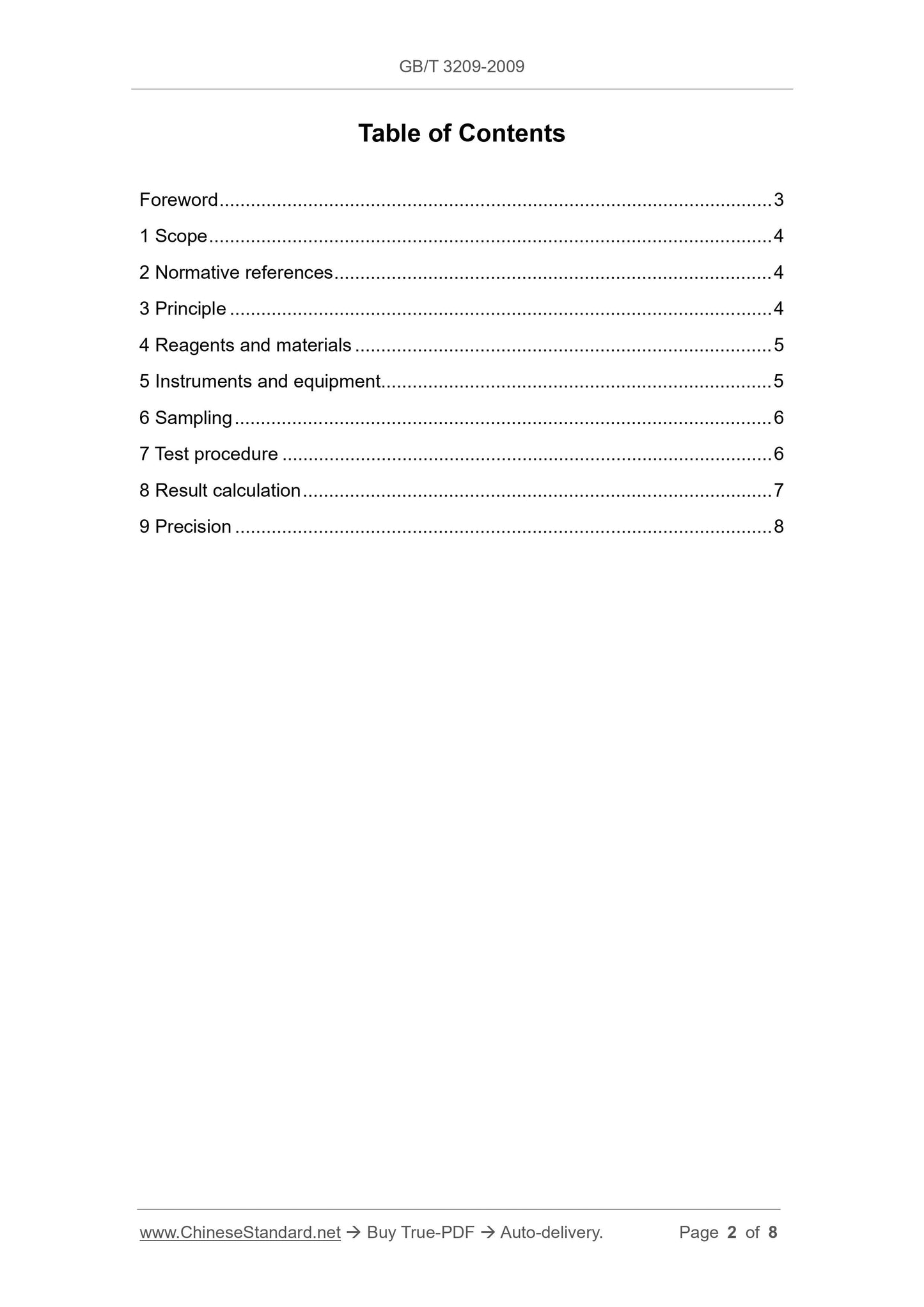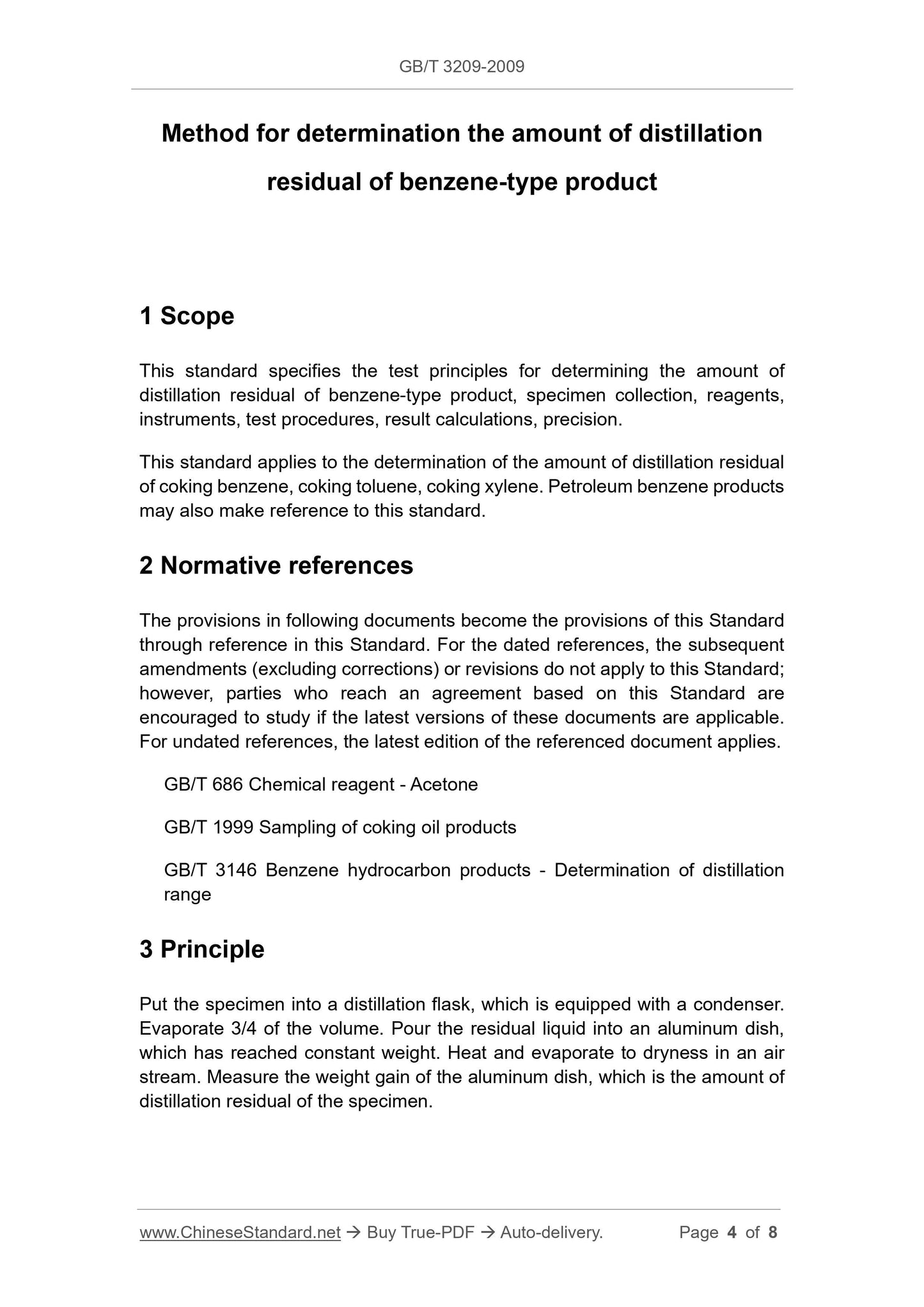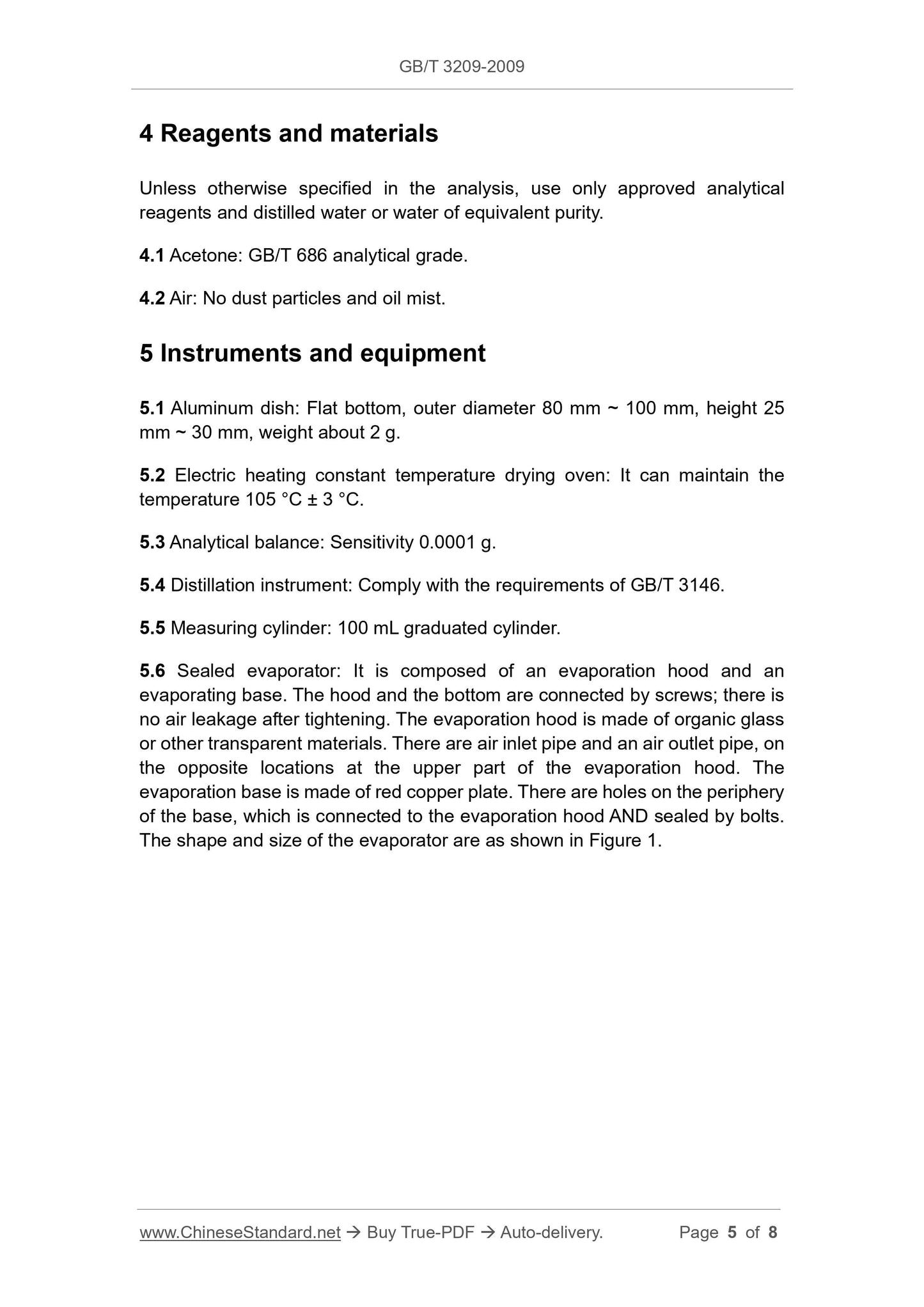1
/
of
4
www.ChineseStandard.us -- Field Test Asia Pte. Ltd.
GB/T 3209-2009 English PDF (GB/T3209-2009)
GB/T 3209-2009 English PDF (GB/T3209-2009)
Regular price
$110.00
Regular price
Sale price
$110.00
Unit price
/
per
Shipping calculated at checkout.
Couldn't load pickup availability
GB/T 3209-2009: Method for determination the amount of distillation residual of benzene-type product
Delivery: 9 seconds. Download (and Email) true-PDF + Invoice.Get Quotation: Click GB/T 3209-2009 (Self-service in 1-minute)
Newer / historical versions: GB/T 3209-2009
Preview True-PDF
Scope
This standard specifies the test principles for determining the amount ofdistillation residual of benzene-type product, specimen collection, reagents,
instruments, test procedures, result calculations, precision.
This standard applies to the determination of the amount of distillation residual
of coking benzene, coking toluene, coking xylene. Petroleum benzene products
may also make reference to this standard.
Basic Data
| Standard ID | GB/T 3209-2009 (GB/T3209-2009) |
| Description (Translated English) | Method for determination the amount of distillation residual of benzene-type product |
| Sector / Industry | National Standard (Recommended) |
| Classification of Chinese Standard | G17 |
| Classification of International Standard | 71.080.15 |
| Word Count Estimation | 6,629 |
| Date of Issue | 2009-07-15 |
| Date of Implementation | 2010-04-01 |
| Older Standard (superseded by this standard) | GB/T 3209-1982 |
| Quoted Standard | GB/T 686; GB/T 1999; GB/T 3146 |
| Regulation (derived from) | National Standard Approval Announcement 2009 No.9 (Total No.149) |
| Issuing agency(ies) | General Administration of Quality Supervision, Inspection and Quarantine of the People's Republic of China, Standardization Administration of the People's Republic of China |
| Summary | This standard specifies the test principle measured benzene products evaporation residues, specimens taken, test procedure, , reagents, instrument calculated results, precision. This standard applies to coking benzene, coking toluene, measured evaporation residue coking xylene. Petroleum products also can refer to the use of benzene. |
Share







